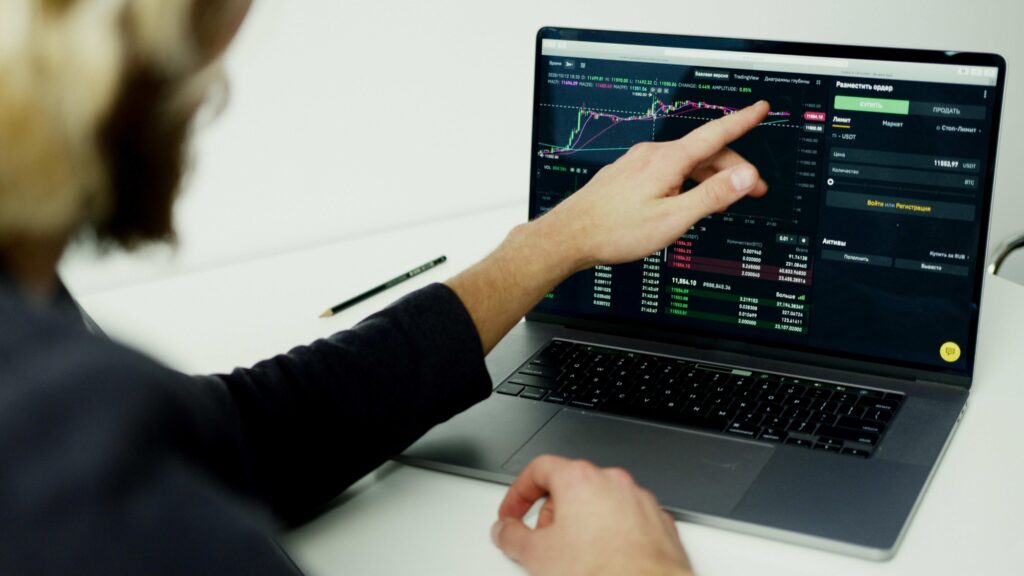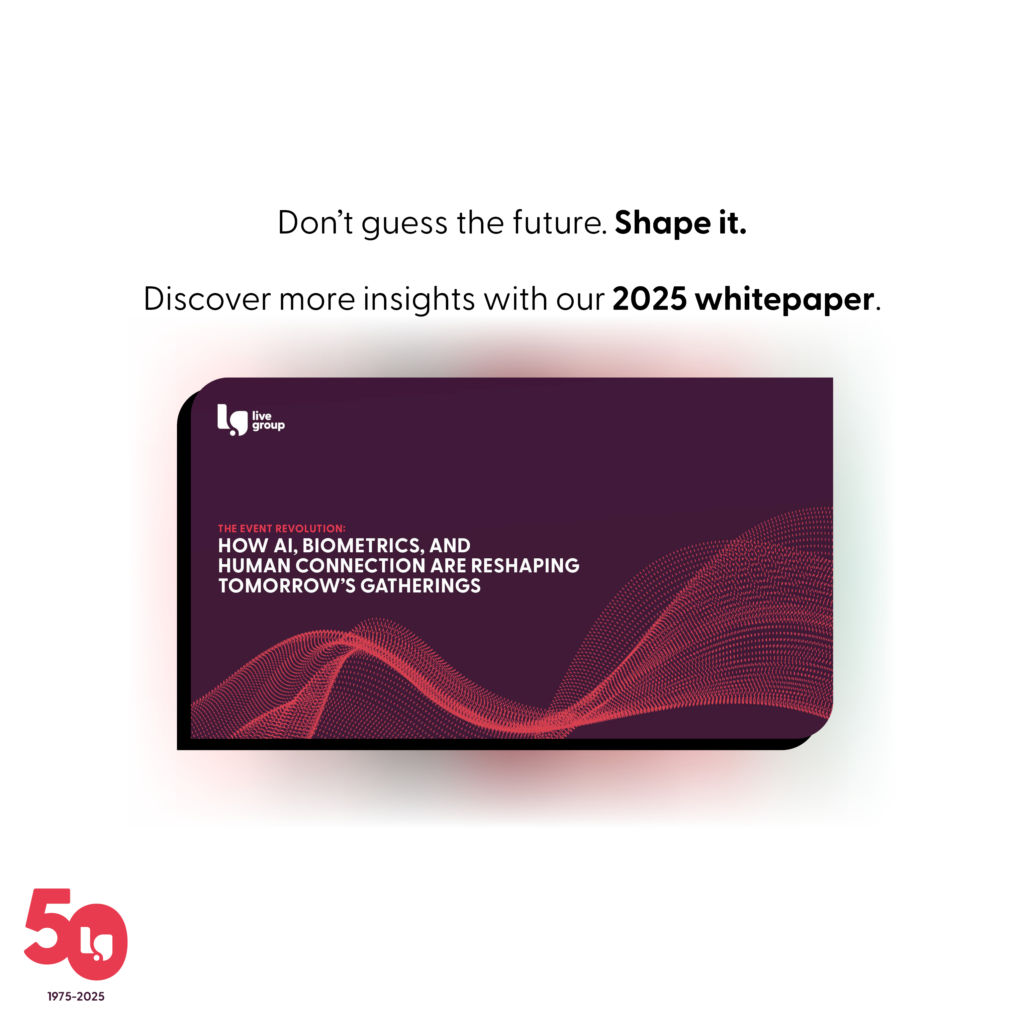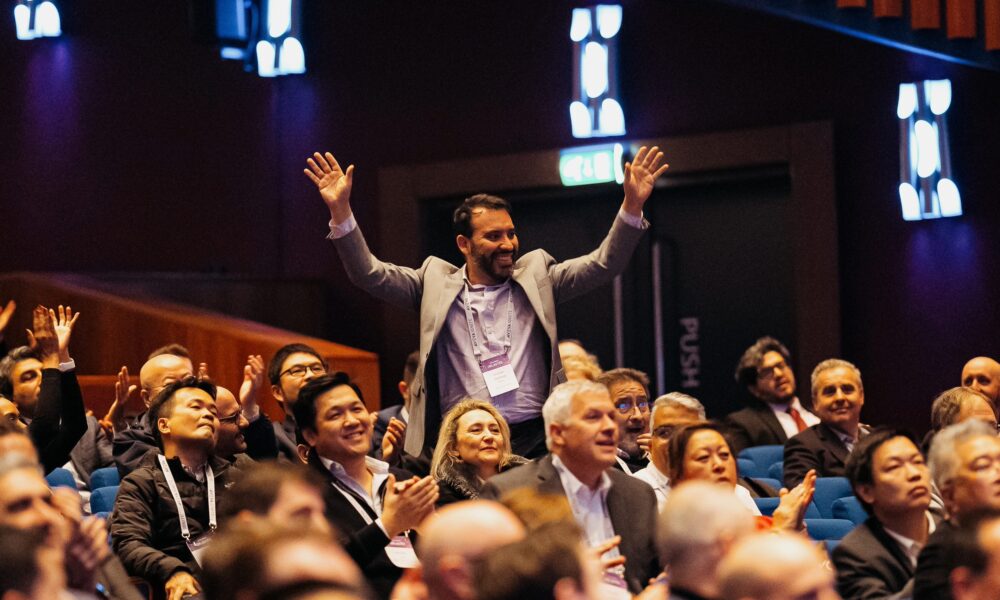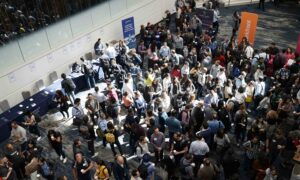Engagement is a word that gets used a lot in events, but do we really know what it means—or how to measure it?
One of the biggest buzzwords in the events industry is “engagement” – often denoting “audience engagement.” By the time you’re deep in the event planning process, you’ve probably heard it so often that you’re almost afraid to ask what it actually means.
To be fair, it’s a slippery concept. Engagement is hard to define and even harder to quantify. It’s part feeling, part behaviour, part outcome. Which makes it seem almost absurd to build into ROI calculations… and yet, in events, we do. Why? Because it’s one of the most important benchmarks that senior stakeholders will use to judge success.
So, what does event engagement really mean, how can it be measured, and most importantly – how can you improve it? In this article, we’ll be breaking all of that down.
Defining Engagement
Engagement has long been a focus of academic inquiry. One study, for example, describes it as “a positive state of mind characterised by vigour, dedication and absorption,” while also framing it as “one’s psychological presence or focus on role activities”
The common thread? Engagement is about being mentally and emotionally invested in the moment, and that investment leads to better outcomes. Whether that’s learning, collaboration, or simply having a memorable experience, engagement is what makes it happen.
So essentially, there isn’t one single definition of engagement, it depends heavily on context. The way you’re absorbed in a film looks different from how you participate in a workshop or collaborate at work. What carries through in every case, though, is the same thread: engagement leads to positive outcomes.
The Four Pillars of Audience Engagement at Events
So, what does engagement look like in the context of an event? We can think of it in four broad pillars:
- Feedback – Attendees’ willingness to share opinions, complete surveys, and voice what worked (and what didn’t).
- Time and Attention – The amount of time attendees spend focused on sessions, content, or event platforms.
- Interaction – Active participation, whether that’s asking questions, networking, or posting on social media.
- Connection – A sense of belonging and community, where attendees feel valued and part of something bigger.
Put simply: if your audience is participating, paying attention, sharing their views, and leaving with a sense of connection, your event has achieved strong engagement.

Why Audience Engagement Matters at Events
Unlike ticket sales or headcount, engagement isn’t always obvious at first glance, but it’s far more telling of an event’s success.
Take an internal strategy kick-off as an example. Attendance may be mandatory, so getting a full room is easy. But a full room of disengaged employees means wasted time, lost investment, and potentially even alienation from your objectives.
What really counts is whether people are switched on: are they learning, contributing, and leaving with a sense of clarity and motivation? That’s the difference between an event that ticks a box and one that creates real value.
How to Measure Event Engagement
Measuring engagement can feel tricky because it depends so much on your objectives. But the right KPIs can help you capture it in a meaningful way. Some examples include:
- Number of meetings booked
- Event app usage (logins, clicks, time spent)
- Session attendance rates
- Audience participation (polls answered, questions submitted, chats started)
- Sponsor footfall and interaction
- Survey scores (satisfaction, NPS, qualitative comments)
- Social media activity (mentions, hashtags, shares)
- Networking connections made
- On-demand content views post-event
- For experiential events: heatmaps, biometric data, or dwell times
The trick is to match KPIs to objectives. A learning-focused event may prioritise session attendance and knowledge retention, whereas a brand activation might lean on social engagement and sponsor traffic. Different goals, different measures, but all connected back to engagement.
How to Improve Audience Engagement
So, how do you get beyond buzzwords and actually improve engagement?
The short answer: by knowing your audience.
You’ll often hear us at Live Group talk about our belief that one-size-fits-all events simply don’t work. Audiences are diverse, and assuming a single format will satisfy everyone is a recipe for disengagement.
That’s why we use audience profiling: getting to know who’s coming, what they care about, and how they prefer to engage. Tools like Live Group’s proprietary AudienceDNA framework and Envoku event management platform go beyond surface demographics (like age or job title) to understand deeper motivations, learning styles, and preferences.
Armed with that insight, you can:
- Curate personalised agendas so people choose what’s most relevant to them.
- Design physical spaces and digital layouts that suit different learning and networking styles.
- Match attendees with the right sponsors or speakers for maximum impact.
- Offer flexibility with hybrid, virtual and on-demand, so people engage in the way that suits them best.
The result? Higher participation, better feedback, stronger community, and events that truly resonate.
Final Thoughts on Event Engagement
Event engagement isn’t a throwaway buzzword. It’s the difference between an event that simply happens and one that changes behaviours, builds connections, and delivers measurable value.
By defining what engagement means for your event, tracking the right KPIs, and tailoring the experience to your audience, you’ll transform engagement from something vague into something tangible, and ultimately, something powerful.
Ready to take the stress out of event planning?
Chat to us today about how our delegate management services can help bring your next event to life – on time, on budget, and beyond expectations. Whether you need full-scale delivery or targeted support, Live Group is here to help.
Download our latest report to explore the latest event solutions, learn how event production agencies are leveraging technology for seamless conference planning, and uncover strategies to enhance hybrid event management.






